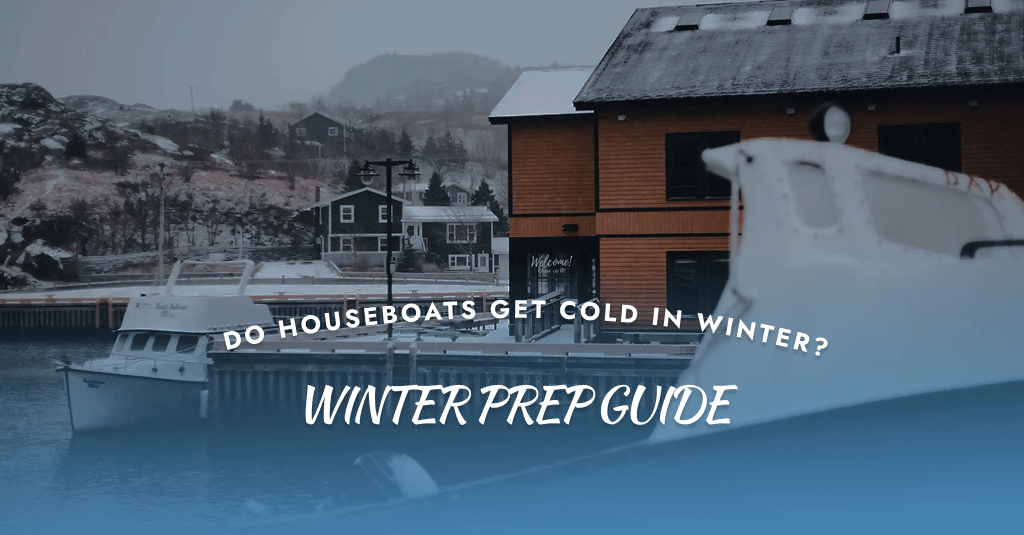
Do Houseboats Get Cold in Winter? Winter Prep Guide
Living on a houseboat offers a unique and adventurous lifestyle. Floating on water, surrounded by nature, and enjoying panoramic views every day is a dream come true for many. But when winter approaches, one pressing question often arises do houseboats get cold in winter? The short answer is yes, they can. However, with proper preparation, insulation, and heating systems, winter houseboat living can be comfortable and enjoyable.
This blog covers everything you need to know to stay warm during the cold months. From understanding why houseboats get cold, to actionable tips to winterize your boat, we’ve got you covered.
Why Do Houseboats Get Cold in Winter?
Before diving into how to keep warm, it’s important to understand the root of the issue. So, do houseboats get cold in winter due to design flaws? Not exactly.
1. Water Temperature Affects Interior Climate
Houseboats float on water, and water retains cold much longer than land. During winter, the surrounding water cools rapidly and maintains low temperatures, which can transfer cold into the houseboat’s structure, especially if it’s not insulated well.
2. Thin Walls and Minimal Insulation
Unlike traditional homes, houseboats are built with lighter materials to remain buoyant. Many older or budget houseboats lack proper insulation. This means cold air can easily seep in during winter.
3. Humidity and Condensation
Cold temperatures often result in increased humidity and condensation inside the boat. Without proper ventilation and heating, this can make living conditions uncomfortable and even contribute to mold growth.
How Cold Can It Get Inside a Houseboat?
If not prepared, the inside of a houseboat can drop to the same temperature as outside. In regions where temperatures fall below freezing, your houseboat could become unlivable without proper winterization. However, modern houseboats with upgraded insulation and heating systems can maintain indoor temperatures similar to a regular home.
So again, do houseboats get cold in winter? Yes but not if you take the right steps.
Top 10 Ways to Prepare Your Houseboat for Winter
1. Insulate the Interior
Insulation is the first line of defense against the cold. Use foam board insulation, thermal curtains, and weather stripping around windows and doors. Consider insulating the hull and walls if not already done.
Tips:
-
Add rugs to the floor to trap heat.
-
Use thermal or double-pane windows.
-
Block drafts using door snakes and sealant tape.
2. Install a Reliable Heating System
A heating system is essential. Common options include:
-
Electric heaters: Efficient for small spaces.
-
Diesel or propane heaters: Great for consistent heat but require ventilation.
-
Wood stoves: Cozy and effective, but need safe installation.
Ensure any system you install is marine-grade and safe for enclosed areas.
3. Skirt Your Houseboat
Skirting is the process of wrapping the bottom of your houseboat to reduce water exposure and prevent the cold from creeping in through the hull. Marine-grade vinyl, foam insulation, or even custom canvas skirts can help retain warmth.
4. Use Dehumidifiers
Winter humidity can cause condensation and mold. Use a small, energy-efficient dehumidifier to maintain optimal humidity levels (between 30–50%).
5. Winterize the Plumbing System
Frozen pipes can be disastrous. Insulate pipes or install heat tape. Drain water tanks if not in use, and consider using antifreeze in waste tanks.
Note: Use only non-toxic antifreeze designed for marine environments.
6. Check Ventilation
While keeping warm is important, good ventilation is just as critical. Poor air circulation leads to moisture buildup, mold, and poor air quality. Install vent fans or crack a window during the day.
7. Invest in Thermal Bedding
Your bed can be the coldest place at night. Use heated blankets, flannel sheets, and heavy comforters. A hot water bottle in the sheets before bed helps too.
8. Use Portable Propane Heaters Safely
Portable propane heaters are popular but must be used with caution. Only use models approved for indoor use, and ensure proper ventilation to avoid carbon monoxide buildup.
9. Seal Windows and Hatches
Windows and hatches are major points of heat loss. Apply insulating film over glass panes, and check seals around all openings.
10. Keep Snow and Ice Off the Roof
If your region gets snow, regularly remove snow and ice buildup. Accumulated weight can cause structural stress and leakage.
Can You Live on a Houseboat in the Winter?
Absolutely. Many people live comfortably on houseboats year-round, including during cold winters. Whether you’re anchored in a quiet marina or floating down a chilly river, your experience depends on how well you prepare.
So, do houseboats get cold in winter if you live on them full-time? They can, but if you follow the right steps, your floating home can be as warm and cozy as any land-based residence.
Best Locations for Winter Houseboat Living
If you’re flexible with location, consider houseboating in warmer regions during winter. Here are a few popular winter-friendly locations in the U.S.:
-
Lake Havasu, Arizona
-
Florida Keys
-
San Diego Bay, California
-
Lake Travis, Texas
In these areas, the risk of freezing temperatures is minimal, making it easier to enjoy houseboat life year-round.
Must-Have Winter Gear for Houseboat Dwellers
Here’s a quick checklist of items to keep handy:
-
Electric blanket
-
Marine-safe space heater
-
Portable dehumidifier
-
Thermal curtains
-
Pipe insulation kits
-
Waterproof, non-slip snow boots
-
Hand warmers
-
Backup power supply
Common Myths About Houseboats in Winter
Myth 1: Houseboats Are Only for Summer
Many believe houseboats are summer-only homes, but with the right upgrades, they can be winter havens too.
Myth 2: You Can’t Heat a Houseboat
False. Numerous heating systems are designed specifically for marine environments.
Myth 3: It’s Too Dangerous to Stay on Water in Winter
While you must take precautions (like monitoring ice buildup or anchor security), living on a houseboat in winter is safe if well-prepared.
So, do houseboats get cold in winter? Yes, they can. But winter doesn’t have to drive you off the water. With proper insulation, heating systems, and a few lifestyle adjustments, you can enjoy the beauty of cold-season houseboat living in comfort.
Winterizing your houseboat isn’t just about staying warm it’s about protecting your investment, maintaining your comfort, and embracing year-round freedom on the water. Don’t let the chill keep you from the lifestyle you love. Prepare in advance, equip your houseboat properly, and you’ll find that winter can be one of the most peaceful and scenic times to live afloat.
Frequently Asked Questions (FAQs)
Can you stay on a houseboat year-round, even in winter?
Yes, with the right preparation, you can live comfortably on a houseboat all year long, including during winter months.
What’s the best heater for a houseboat?
Electric heaters, marine diesel heaters, and wood stoves are all great options. Choose based on your space, power source, and ventilation.
How do you insulate a houseboat for winter?
Use foam board insulation, thermal curtains, sealants, and floor rugs. Consider insulating the hull and walls if not done already.
Is condensation a problem in winter on houseboats?
Yes, condensation can be a major issue. Combat it with proper ventilation and a dehumidifier.
What temperatures can you expect inside a houseboat in winter?
Without heat or insulation, inside temperatures can match outdoor conditions. With the right setup, you can maintain comfortable indoor warmth.





